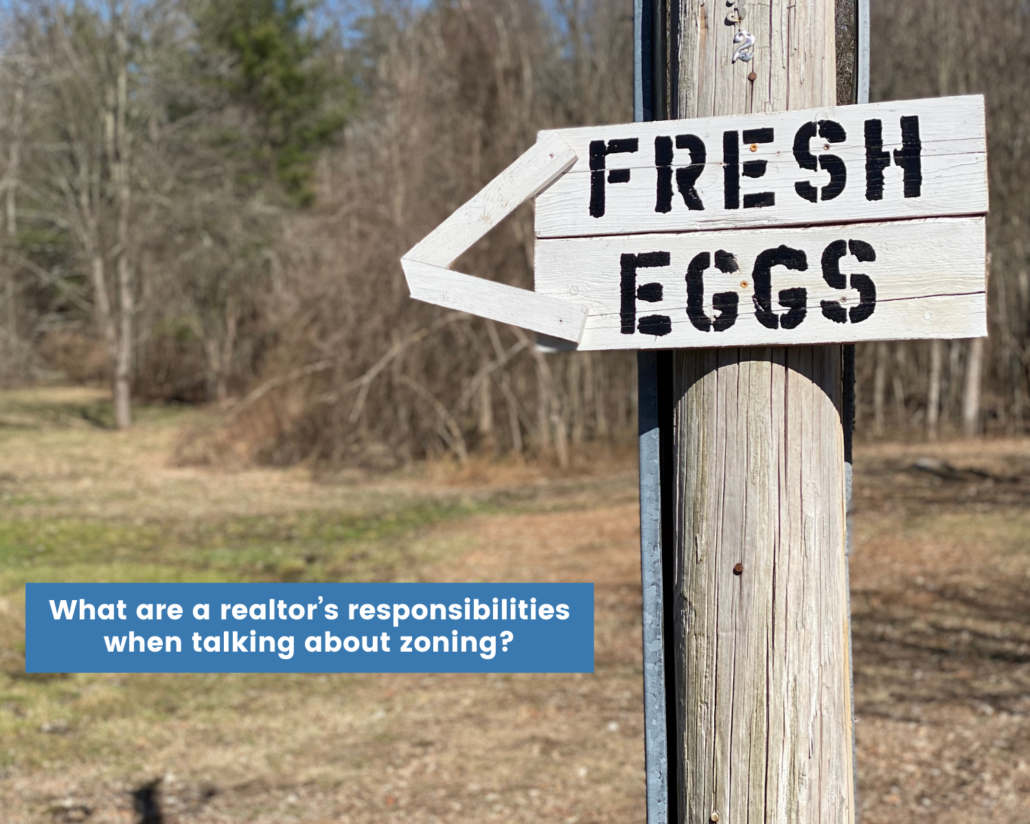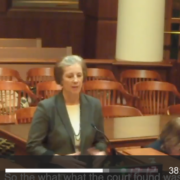What Are a Realtor’s Responsibilities When Talking About Zoning?

What ARE a realtor’s responsibilities when talking about zoning with a client here in the Berkshires? It makes sense for a successful realtor to describe all aspects of a featured property. Prospective buyers are likely interested in the interior design, the layout, the exterior appearance, landscaping, outbuildings, and numerous other aspects of the property. One question that arises time and again is whether the property can be used in the manner desired by the prospective buyer. Many listings feature the zoning that applies to the property and describe various uses of the property that are possible. Unfortunately, without the proper, specific disclaimer language, a realtor can be held liable for statements made about the zoning of a particular property.
Why does zoning matter?
As a brief summary, cities and towns in Massachusetts may regulate the use of land, as well as the buildings and structures. Each town in Berkshire County has adopted a zoning bylaw containing these rules concerning the use of land in that town. Each town’s zoning bylaw is unique, and thus each town’s rules concerning what use can be made of land in that town are also unique. If that is not complicated enough, most towns have multiple zoning districts. This means that some parts of the town may be used only for residential purposes, while some areas may be used for other purposes, such as commercial, industrial, and so on. Obviously, it is important to know how a particular property may be used and what buildings or structures may be placed on the property. This is true both about possible future uses and buildings, as well as existing uses of, and buildings on, the property. There are many pitfalls associated with zoning. For instance, one cannot assume that a building or use is legal simply because it has been on the property for a long period of time.
A conscientious realtor can be put in a difficult position: the realtor wants to provide all available information to a prospective buyer, but does not want to make statements about zoning that could later prove problematic. The worst-case scenario, of course, is that the realtor tells a buyer that the property can be used in a certain manner (such as a building lot), and that the buyer purchases the property and then later is shocked to learn that the property is unbuildable.
What can a realtor say about zoning and how can she/he be protected?
A realtor can always give their best sense of the permitted uses when referencing zoning: they should clearly state that the buyer should not rely on their representations as to zoning or use of the property. It is probably not enough to have a general disclaimer in boilerplate language at the end of the listing.
Unfortunately, this issue has gone to court several times. The Massachusetts Supreme Judicial Court has held that a realtor may be liable for misrepresentations about zoning if the realtor: (1) in the course of their business, or in a transaction in which they had a *800 pecuniary interest, (2) supplied false information for the guidance of others (3) in their business transactions, (4) causing and resulting in pecuniary loss to those others (5) by their justifiable reliance on the information, and that the realtor (6) failed to exercise reasonable care or competence in obtaining or communicating the information. DeWolfe v. Hingham Ctr., Ltd., 464 Mass. 795, 799–800 (2013). In short, the broker has a duty to exercise reasonable care in making representations to prospective buyers. A realtor has a duty in Massachusetts to investigate before making representations as to the zoning classification of a property.
The best practice? If a realtor is going to mention zoning, the realtor should explicitly state that the buyer should not rely on the realtor’s representation about zoning and should investigate the applicable zoning themselves.
Follow us on Facebook, Instagram, and LinkedIn to know when we post blog posts that may be of value to you.
Want more info on Zoning in the Berkshires? Click here.
Also, we recommend you download our guides for buyers and sellers.
Disclaimer: The information contained herein is for informational purposes only. It does not constitute the rendering of legal or other professional advice or services. Your review of this post and/or use of the Lazan Glover & Puciloski, LLP website does not create an attorney-client or confidential relationship between you and Lazan Glover & Puciloski, LLP or any of its attorneys. Information provided herein or on the website should not be relied upon or used as a substitute for consultation with legal, accounting, tax, and/or other professional advisors. Since any electronic communication between you and Lazan Glover & Puciloski, LLP through this website will not be privileged or confidential, it may be disclosed to other persons and may not be secure. Accordingly, please do not send any e-mail to the Firm that contains confidential or sensitive information without first speaking with an attorney at Lazan Glover & Puciloski, LLP and receiving permission to do so.







